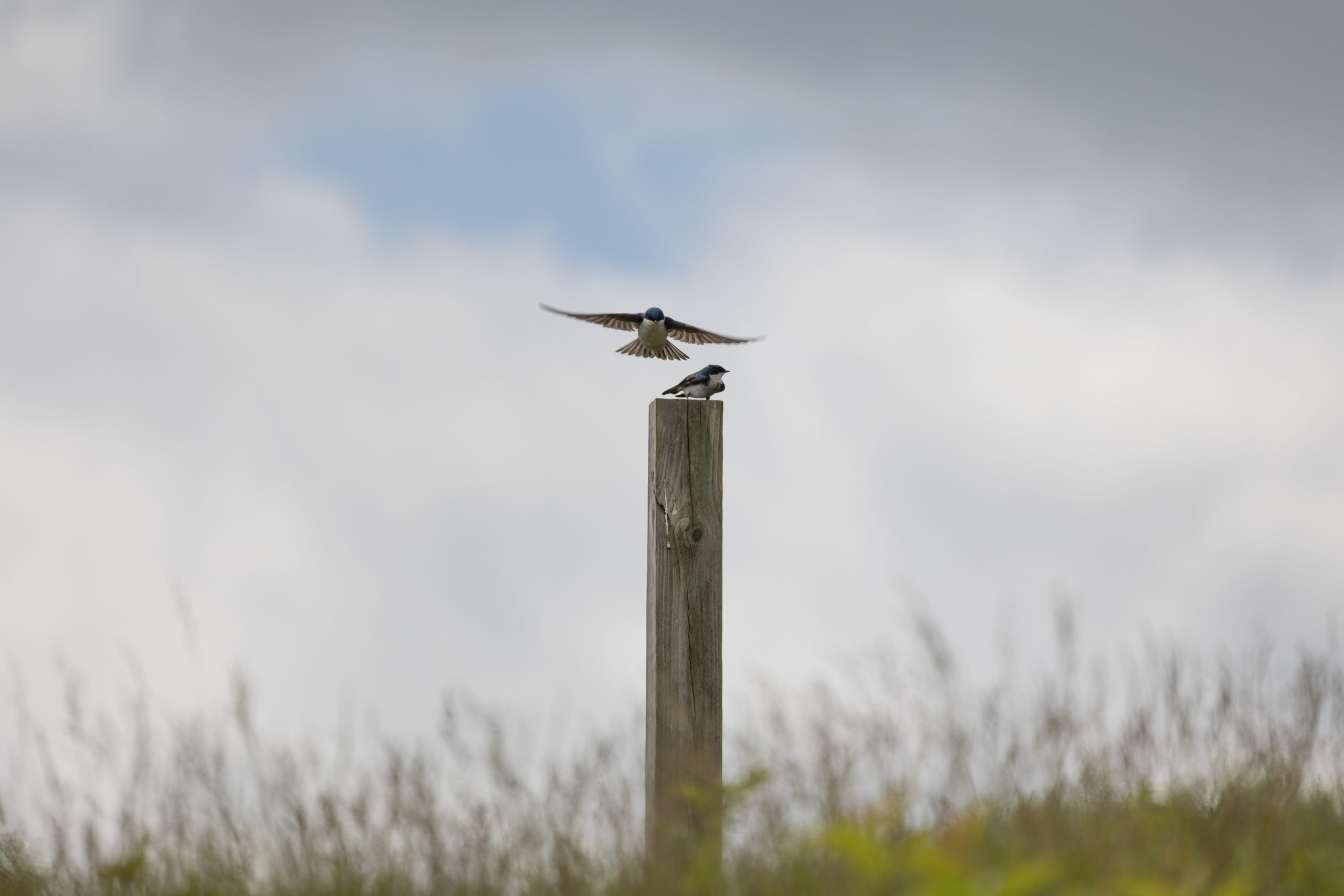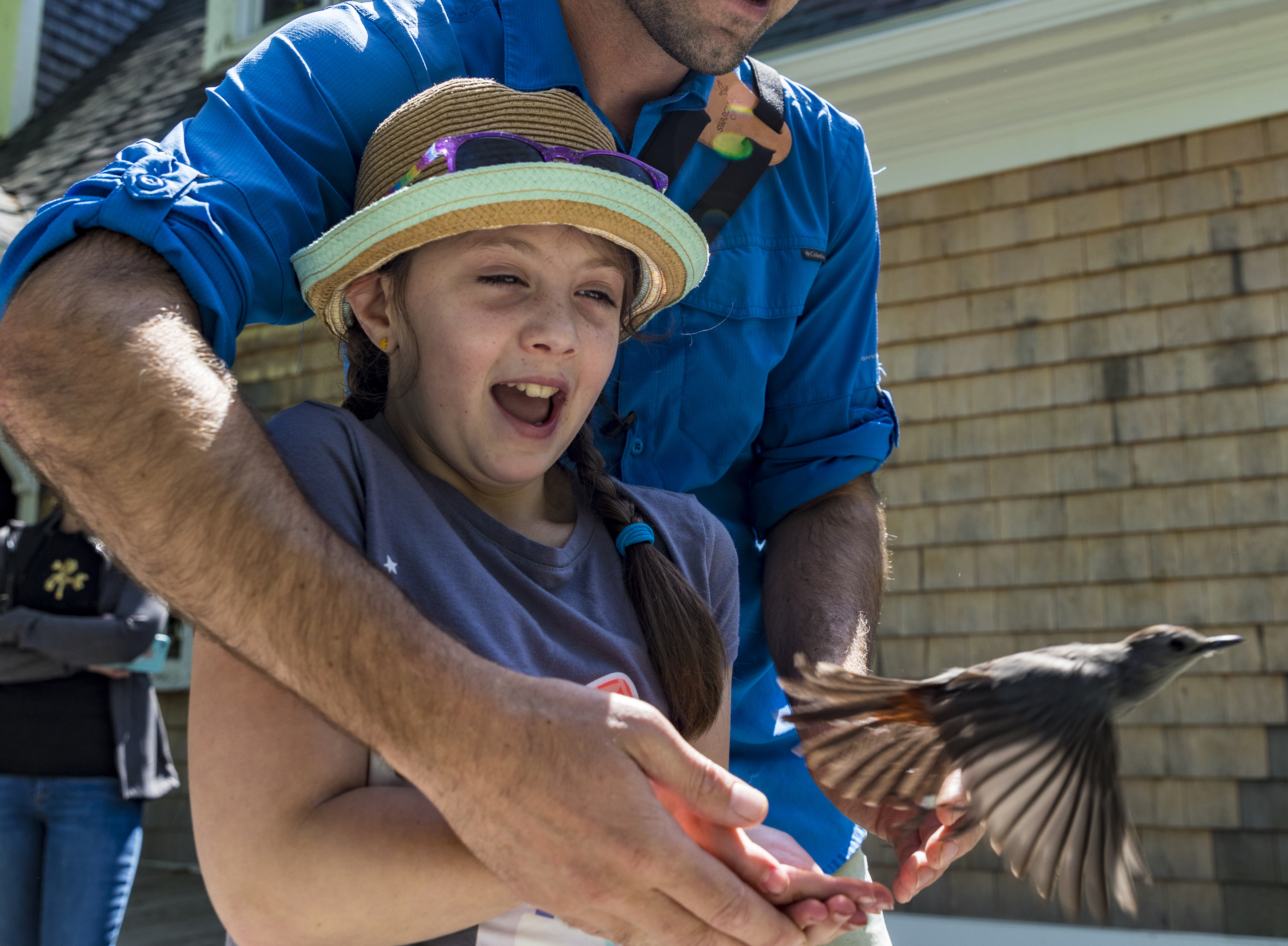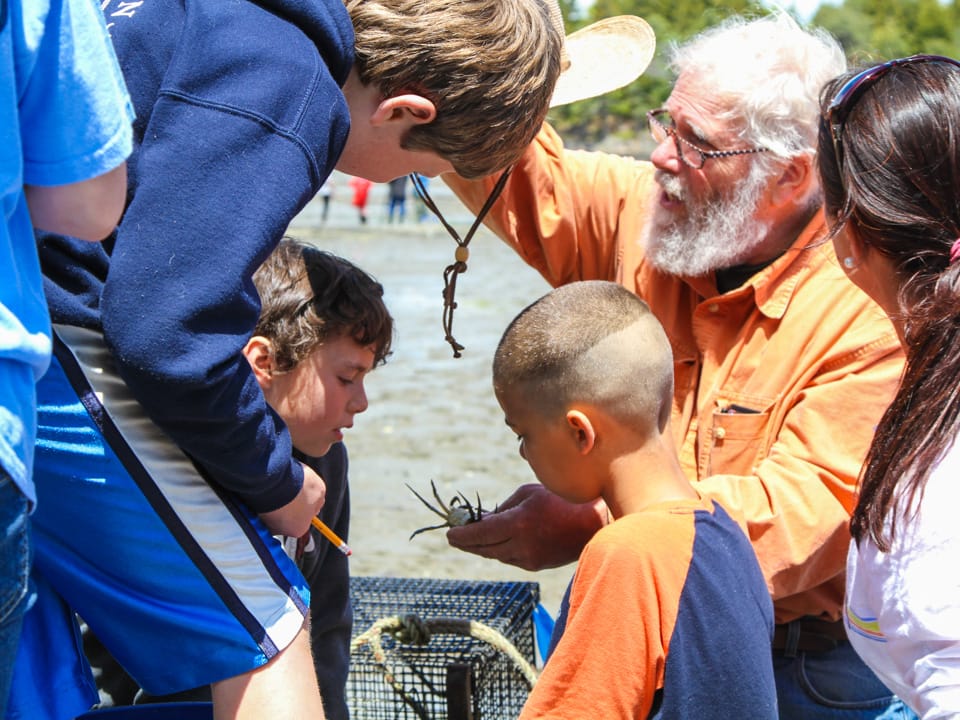
Andrea Ferreira
Science Communications Manager
Over 50 years ago, Manomet Conservation Sciences began as a bird banding lab in Plymouth, Massachusetts. Since then, our spring and fall migration banding program has run continuously, making it one of the first bird observatories established in North America. Bird banding is an effective research tool that has helped answer critical questions about conservation, migration, and the impacts of climate change. Today, our campus continues to serve as a living laboratory for science and education.
Every spring at Holmes Farm (part of our Manomet Campus), the meadows come alive with the merry chirping and swooping of Tree Swallows. From mid-April through August, our team monitors the on-site nesting boxes to see which species move in, and how many young they are able to successfully raise. By observing and banding Tree Swallows, we’re learning how many offspring our fields can support and how climate change is reshaping the rhythm of their nesting season. In the summer of 2025, we banded 17 Tree Swallow nestlings and six adults, including three returning adults from previous seasons. One of these adults was born and banded in the nest box next door the previous year.
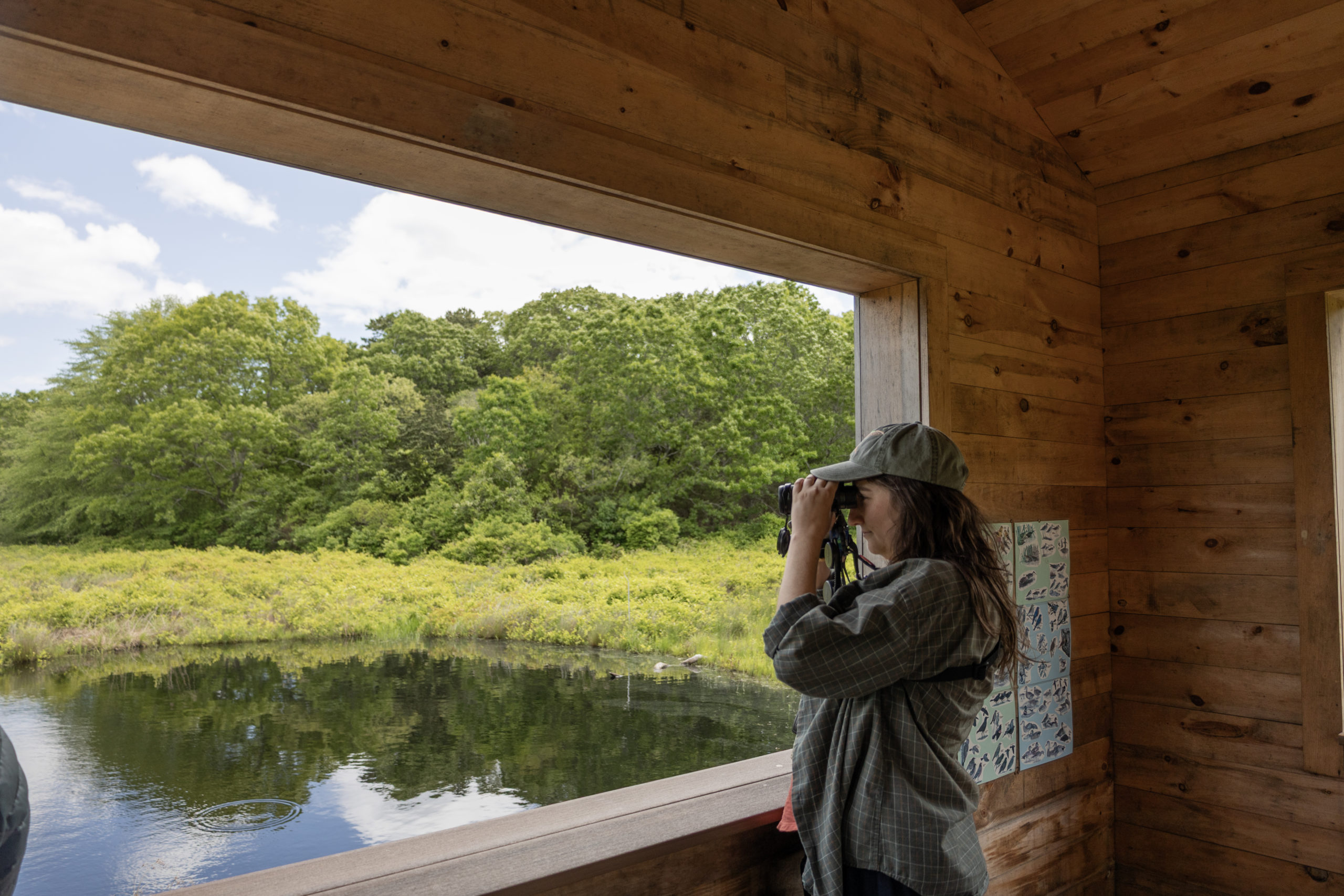
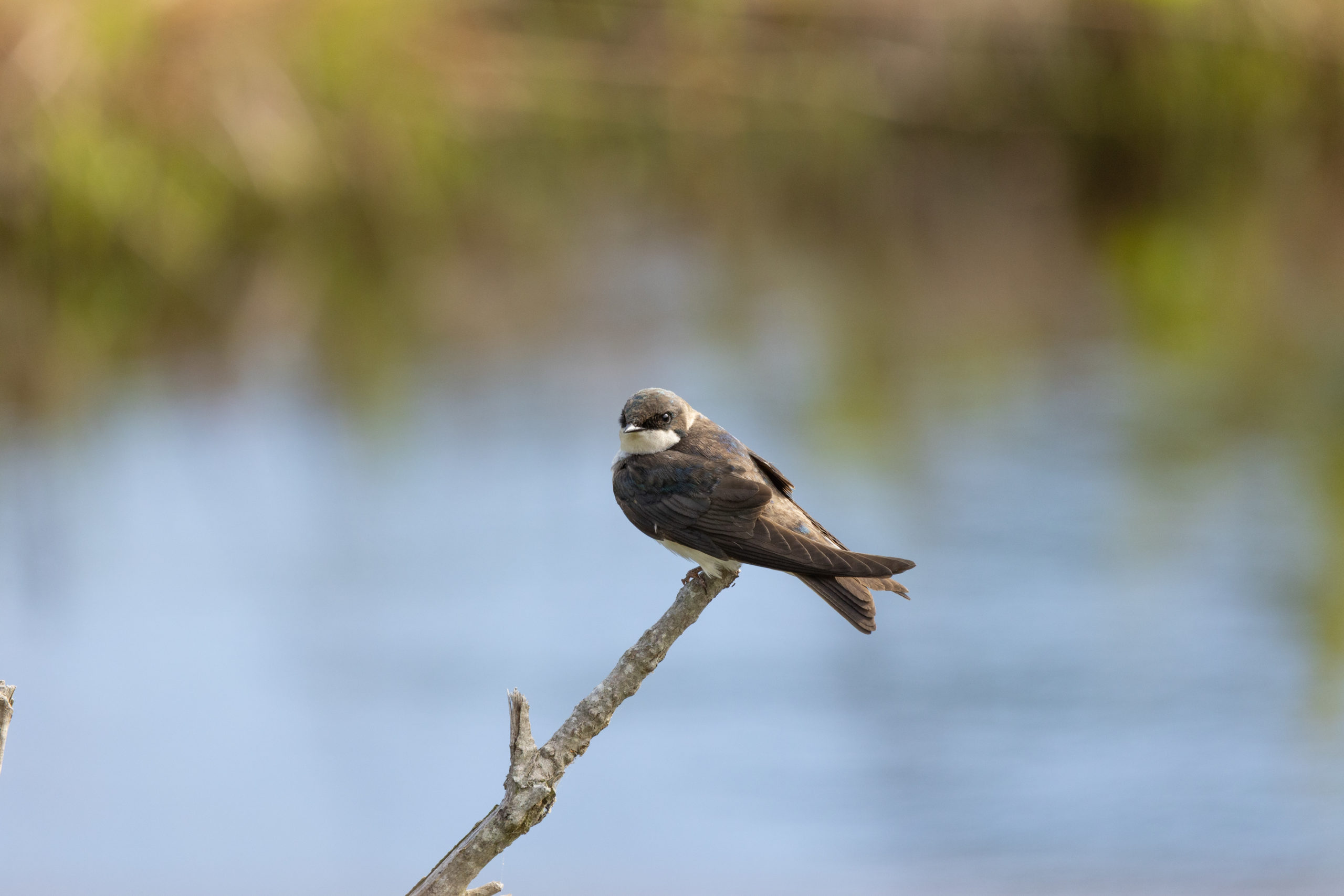
We encourage visitors to the Betty Anderson Nature Trail to spend time in our accessible wildlife viewing blind. In the summer, it’s the perfect vantage point to watch Tree Swallows in action. These sleek, iridescent birds thrive in open habitats near water, like the meadows and marshes surrounding our blind. From this quiet spot, it’s easy to see swallows darting gracefully overhead as they feed on insects and slip into nearby nesting boxes to tend to their young.
Why should we study them?
Tree Swallows are not only beautiful to watch, but they are also important for science and conservation. Because they readily nest in boxes, researchers can closely monitor their behavior, diet, and reproductive success. Their reliance on aquatic insects makes them highly sensitive to changes in water quality and pollution, turning them into living indicators of environmental health. Studying Tree Swallows helps scientists understand how climate change shifts migration and breeding patterns, and develop strategies to manage landscapes for biodiversity.
Beyond their scientific value, Tree Swallows play an important ecological role as natural pest controllers, consuming countless flying insects each day. Their presence benefits farms, wetlands, and communities, helping to keep insect populations in balance. And with their shimmering blue backs and acrobatic flight, they are a delight to observe, inviting all of us to connect more deeply with the natural world.

Help us carry this legacy forward.
For more than 50 years, Manomet’s banding lab has tracked the journeys of over 250,000 birds, building a foundation of knowledge that reveals the story of migration, climate change, and the health of bird populations. You can be part of that story—by symbolically adopting a mist net or nesting box for a season, gifting a net or box in the name of a loved one (the bird enthusiast in your life will thank you!), or supporting the next generation of scientists through a banding intern sponsorship. However you give, you’re fueling the research and training that keep bird conservation in motion.
Click here to make a gift and help ensure the next 50 years of discovery take flight.





 Back to all
Back to all